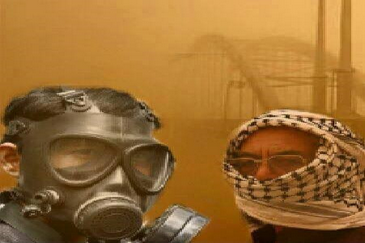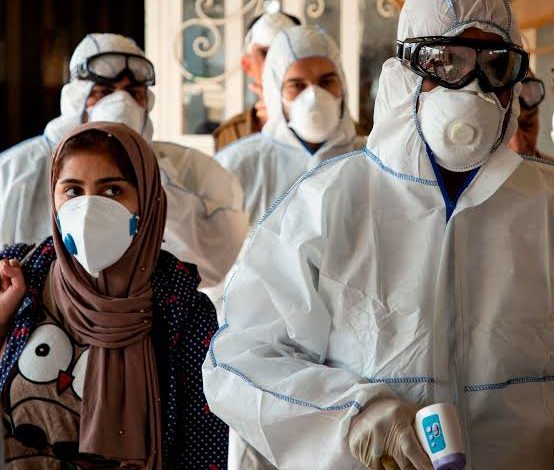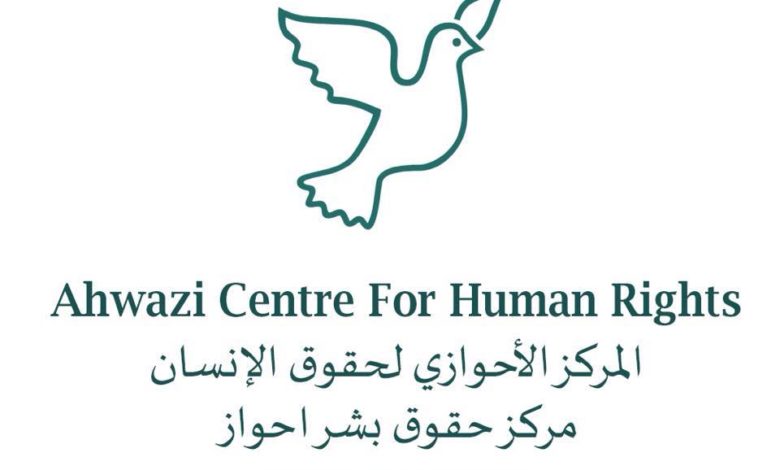Iraq’s Kurdish referendum inspiring Iranian minorities seeking rights

Ever since the creation of Iran as a nation-state in the aftermath of the First World War, the central government has employed policies to oppress, suppress, marginalise, assimilate, and discriminate against the country’s non-Persian nationalities.
These targeted minority groups include the Kurds, Al-Ahwazi Arabs, Turkmen, and Baluch, among others living within Iran’s borders. Since the 1920s, the dominant Persian group, which makes up about half the country’s 80 million population, has dominated all aspects of government and economy. In the process, the Persian majority have peddled the idea of ‘one country, one language, one identity’ in order to Persianise the country through assimilating or eradicating the distinct identities of minority groups.
These diverse nationalities to date do not have access to education taught in their respective native languages, despite being guaranteed this right by Article 15 in the 1979 Iranian constitution. The Iranian regime has always been fearful of allowing Article 15 to be implemented in any real way. The Iranian regime believes that allowing minorities to preserve their native cultures, traditions, histories, and languages will only serve to divide the country – threatening Persian dominance.
Despite many of the minority regions being rich in resources, these groups suffer from some of the highest poverty and unemployment rates in the world. This is due to the preferential hiring of Persians as well as the systematic destruction of viable land to work. Despite the disenfranchising policies enforced upon Iran’s minorities by both past and present ruling regimes, efforts to silence their voices have failed. Those people living beneath the yolk of regime oppression have continued to resist – calling for protection and preservation of their national identities, cultures, and languages.
The Iranian regime perceives these demands for equal rights by minorities as a direct threat to the territorial integrity of the country. The last thing the regime wants is for minority discontent to grow into bids for independence – or worse yet, revolutions that may fracture the country into pieces. To crush dissent, Iran keeps minority regions under constant surveillance – arresting, detaining, torturing, and executing civilians and activists.
Habib Jabor, the head of the Arab Struggle Movement for the Liberation of Al-Ahwaz on his tweeter account wrote, “Kurdistan independence referendum could not be confined in granting Kurds right of self-determination, but it will also open the door for all peoples under Iranian occupation to take earnest steps to establish their own independent states”.
The liberation struggle of the oppressed Kurdish nation in Iran is intrinsically linked to other nations that are seeking freedom from similarly repressive and chauvinistic regimes. All those peoples striving for independence inspire each other in their achievements and come together against their common oppressors. The recent Independence referendum of neighboring Iraq’s Kurdistan has hugely impacted Iran as well – especially in regards to the reactions from Kurds and other minorities suffering from Iranian regime persecution and discrimination. Naturally, Iranian Kurds have been congregating together in celebration of Iraq’s referendum, but so have other Iranian minorities who see the decision as a sign of hope for their own struggle.
It would seem that Iraq’s Kurdish referendum is inspiring those minorities in Iran to think more earnestly regarding their desire to end Iranian tyranny and pursue self-determination. Kurdish cities in Iran’s Kurdistan province have not yet taken to engaging in massive and long-lasting protests due to tough security crackdowns and repressive practices in the region. However, these restrictions did not prevent tens of thousands of Iranian Kurds from cheering in the streets when Iraq’s Kurdish referendum was announced. Their joy and hope stood in defiance of Iranian oppression.
Another consequence of Iraq’s Kurdish referendum has been a restructuring of unity and solidarity in Iran. The Iranian regime, Persian civilians, and even Persian activists have all persisted in holding negative attitudes towards the country’s Kurdish population. This stance has only served to further ally Iranian Kurds with their Iraqi neighbors. Recent developments with the Kurdish referendum in Iraq have resulted in Ahwazi Arabs, Baluchis, and Turkish Azeri people showing increased sympathy towards Kurds in Iran. This would seem to suggest that these oppressed groups in Iran may benefit from solidarity with one another as well as international community support to achieve their common goals of independence.
The Iranian regime has always projected itself as a defender of oppressed people – especially during the Iraq-Iran war in which the regime hid behind Iraqi Kurdish claims against the Saddam Baath regime. However, recent developments have brought to light inconsistencies between the regime’s statements and its practices. Since the Kurdish referendum, Iran has renewed military and economic threats against Iraq’s Kurdistan. Despite Iran’s virulent protestations against any form of Kurdistan, if the referendum process receives national and international support, this will put massive pressure upon the Iranian regime to accept it or face consequences. If Iran cannot adopt a positive position towards an independent Kurdistan, it may only further embolden non-Persian people in the region to bond together in their own demands for rights and freedoms beyond the constitutional articles.
“I think that the referendum in Kurdistan will be a sturdy catalyst in inspiring others seeking freedom and independence worldwide, including Iranian Kurds, Ahwazis, Palestinians, Syrians, Catalonians, Scots,” said Raed Baroud to BasNews, a Palestinian activist. “And they’ll encounter a lot of resistance to that – I think that various powers in the Middle East and worldwide will try to exploit the referendum and those struggles for their own ends, to play people off against each other, to help with their own oppression. They may even have another world war. But in the end, freedom will win, I do believe that. I hope it happens in my lifetime.”
Yasser Assadi, Ahwazi rights activist based in London said to BasNews, “The Kurds are themselves a long oppressed people and their suffering is the same as our long overdue suffering. Such an ethnic oppression is growing a kind of meaningful mutual solidarity because we share a struggle and accordingly fight common injustices. We wish that Kurds establish an alliance with the Ahwazis even after independence also because the Kurds need sea access and our port city of Muhammarah of Ahwaz region is close to them – facing the Arabian Gulf.”
The independence of Iraqi Kurdistan, if successful, will be a perfect model for oppressed peoples in the region to escape regime domination and colonisation. Iran and Turkey strongly oppose the referendum and fear that the growing ambitions of Kurdish people in Iraq will spread to the Kurdish people in neighboring countries. The Iranian regime specifically is concerned that Kurdish strides towards self-determination will inspire oppressed minorities in Iran such as Ahwazi Arabs, Kurds, Turks, and Baluchis to demand similar rights to freedom.
S: aLiBz




